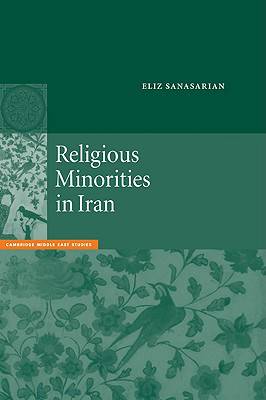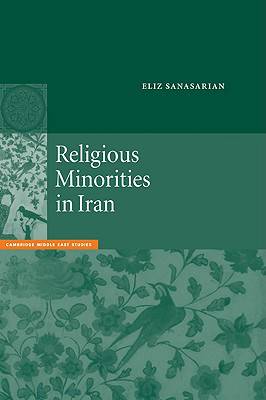
- Afhalen na 1 uur in een winkel met voorraad
- Gratis thuislevering in België vanaf € 30
- Ruim aanbod met 7 miljoen producten
- Afhalen na 1 uur in een winkel met voorraad
- Gratis thuislevering in België vanaf € 30
- Ruim aanbod met 7 miljoen producten
Zoeken
Omschrijving
Eliz Sanasarian's book explores the political and ideological relationship between non-Muslim religious minorities in Iran and the state during the formative years of the Islamic Republic to the present day. Her analysis is based on a detailed examination of the history and experiences of the Armenians, Assyrians, Chaldeans, Jews, Zoroastrians, Bahais and Iranian Christians, and describes how these communities have responded to state policies regarding minorities. Many of her findings are constructed out of personal interviews with members of these communities. While the book is essentially an empirical study, it also highlights more general questions associated with exclusion and marginalization and the role of the state in defining these boundaries. This is an important and original book which will make a significant contribution to the literature on minorities and to the workings of the Islamic Republic.
Specificaties
Betrokkenen
- Auteur(s):
- Uitgeverij:
Inhoud
- Aantal bladzijden:
- 252
- Taal:
- Engels
- Reeks:
- Reeksnummer:
- nr. 13
Eigenschappen
- Productcode (EAN):
- 9780521029742
- Verschijningsdatum:
- 2/11/2006
- Uitvoering:
- Paperback
- Formaat:
- Trade paperback (VS)
- Afmetingen:
- 152 mm x 229 mm
- Gewicht:
- 371 g

Alleen bij Standaard Boekhandel
+ 121 punten op je klantenkaart van Standaard Boekhandel
Beoordelingen
We publiceren alleen reviews die voldoen aan de voorwaarden voor reviews. Bekijk onze voorwaarden voor reviews.











